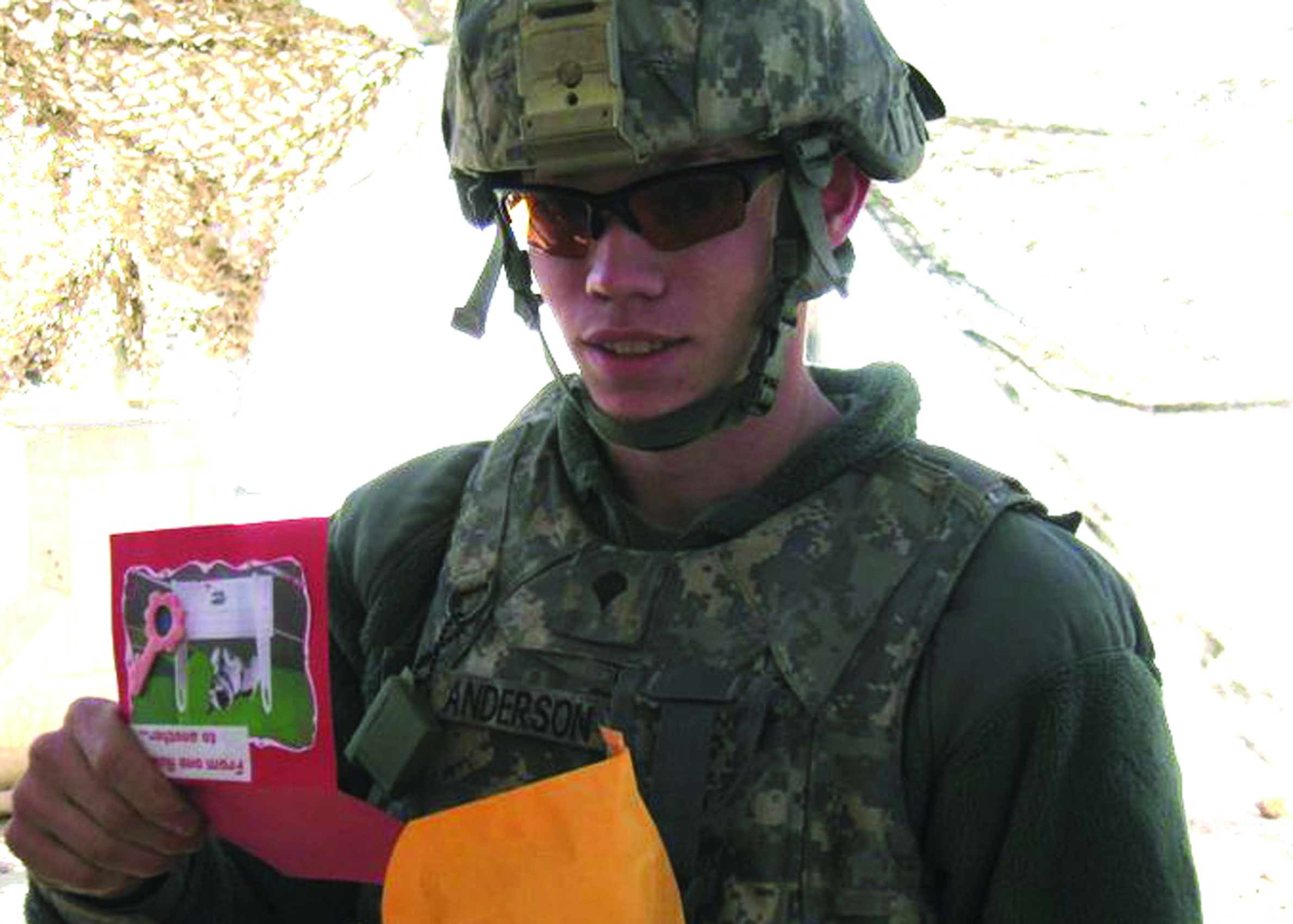By Madison Roberts
Staff Writer
“The only thing I heard from my dad was that [my brother] got shot. I didn’t know where; I didn’t know if he was okay.”
Senior Lexie Chaney described her feelings when she found out that her older brother, who was fighting overseas in Afghanistan, was shot in the arm.
“I was flipping out… I was just out of my mind,” Chaney said.
Having loved ones in various branches of the military has affected Northwood students and faculty in many different ways.
“It sucks knowing that he’s over there and fighting this war, but at the same time I’m really proud of him,” senior Catherine Anderson said of her older brother, Chris.
Catherine said that Chris, an Army Reserves member who has been in Afghanistan since January, has missed out on important times in her life.
“On my birthday he wasn’t there and we always think of things that he would enjoy but he’s not here to enjoy them, so it’s really hard,” Anderson said.
Senior Brady Kelly, whose dad is overseas, recognized the impact of having a parental figure missing from his household.
“It didn’t really affect me that much but it affected my little brother. He went through a little depression stage missing out on the parent being there,” Kelly said. “I kind of had to fill that role slightly so I knew he was being taken care of.”
Although it has been a difficult time for senior Landis Barber to have his brother overseas, he says he values his brother’s happiness.
“It’s not an easy experience but he enjoys it, and as long as he’s happy, I’m happy,” Barber said.
Barber’s brother joined the Marines after graduating from Northwood. He had previously been deployed to Iraq twice and recently returned home from Afghanistan.
Having a family member on active duty not only affects students as individuals, but it can also drastically change the relationships between family members.
“I really don’t see [my brother] that much and growing up it was just me and him against the world pretty much,” Chaney said. “When it comes to me and him, when we do talk, it’s still the same as when we were kids but we don’t see much of each other or have a chance to talk so we kind of have a strained relationship.”
Social studies teacher Mary Cox has also felt the effects of having a loved one overseas. Her husband retired from the military in order to start a family.
“One of the reasons he decided not to continue service was because we wanted to have a family,” Cox said. “Being in the military doesn’t help families; you’re separated so much and you miss so much of your childrens’ and your spouse’s lives.”
CTE teacher Kim Hall, who has a nephew in the Marines, believes that it has made her family stronger.
“It brings us closer in that he’s on all of our minds a lot…. He will try to call when we’re all together so that just makes us want to be together that much more,” Hall said.
Despite the effect that the military has had on family relationships, some Northwood students have still considered joining the military.
“I’d say that my older brother has had a lot of influence on me [joining the military]; but out of everybody in my family, I’d be the first girl to go in,” Chaney said.
Kelly has not completely ruled out joining the military in the future.
“It’s a back up plan. I would go be a pediatric surgeon or something. I wouldn’t put myself on the line,” Kelly said.
Junior Madison McDiarmid says that because of the effect it had on her father and family, she does not want to join the military.
“It is a great honor to be in the military but it breaks down [people] mentally, emotionally and physically. It’s just so hard on them and I would never want to do that,” McDiarmid said.
Throughout all the struggles and strained relationships, most families would say that the best part about having a family member overseas would be the moment they get to return home.
“I’m just super excited to have one of my brothers back home,” Anderson said. “It’s too quiet without him.”


